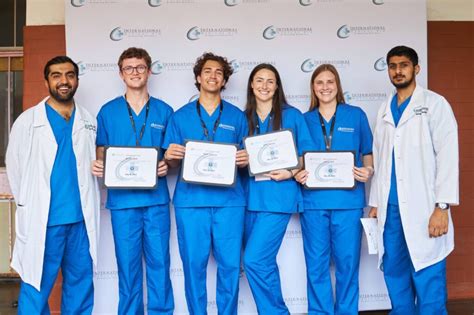The path to becoming a medical doctor requires a rigorous undergraduate education that lays the foundation for success in medical school and beyond. Pre-med programs provide a comprehensive curriculum designed to prepare students for the challenges of medical practice. Choosing the right pre-med program is crucial for optimizing your academic experience, maximizing your chances of acceptance into medical school, and laying the groundwork for a fulfilling medical career.

Top-Tier Pre-Med Programs in the United States
According to the Association of American Medical Colleges (AAMC), the top 5 pre-med programs in the United States based on acceptance rates to medical school are:
| Institution | Acceptance Rate |
|---|---|
| Reed College | 78.4% |
| Johns Hopkins University | 74.8% |
| Stanford University | 73.4% |
| California Institute of Technology | 72.9% |
| University of Notre Dame | 71.1% |
These institutions boast exceptional science curricula, strong faculty support, and access to research opportunities that enhance students’ competitiveness in medical school admissions.
Key Factors to Consider When Selecting a Pre-Med Program
Choosing the right pre-med program depends on several factors that align with your academic goals, interests, and future career aspirations. Key considerations include:
1. Academic Rigor and Course Offerings:
– Review the program’s curriculum and ensure it covers the required pre-med coursework (e.g., biology, chemistry, physics, mathematics).
– Assess the level of academic rigor and challenge offered by the program.
– Consider the availability of research opportunities and opportunities for hands-on learning.
2. Faculty and Student Support:
– Inquire about the quality of faculty and their research expertise.
– Determine the size of the program and student-to-faculty ratio.
– Evaluate the availability of tutoring, advising, and academic support services.
3. Location and Campus Culture:
– Consider the program’s location and whether you prefer an urban or suburban campus environment.
– Explore the campus culture and social atmosphere to ensure it aligns with your interests.
– Research the availability of housing and off-campus living options.
4. Extracurricular Activities and Leadership Opportunities:
– Assess the program’s offerings for extracurricular activities, clubs, and organizations related to pre-med and medicine.
– Evaluate the opportunities for leadership roles and community involvement.
– Consider the availability of pre-med advising and mentorship programs.
5. Medical School Acceptance Rates and Alumni Success:
– Obtain data on the program’s acceptance rates to medical school.
– Research the post-graduation outcomes of alumni and their success in medical practice.
– Inquire about the program’s reputation among medical school admissions committees.
Tips for Maximizing Your Pre-Med Experience
1. Maintain a Strong Academic Record:
– Excel in your science and mathematics courses, especially those required for medical school.
– Seek out challenging courses and demonstrate your ability to handle rigorous coursework.
– Utilize office hours, study groups, and tutoring to enhance your understanding.
2. Pursue Research and Clinical Experiences:
– Engage in research projects with faculty mentors to gain hands-on laboratory experience.
– Volunteer or shadow in clinical settings to develop practical skills and build connections.
– Participate in medical mission trips or community outreach programs to broaden your perspective.
3. Cultivate a Broad Perspective:
– Explore non-science courses to develop critical thinking, communication, and cultural literacy.
– Engage in extracurricular activities and leadership roles to demonstrate well-roundedness.
– Read widely and stay informed about current events and medical advancements.
4. Seek Mentorship and Guidance:
– Identify a faculty advisor or mentor who can provide guidance and support throughout your pre-med journey.
– Join student organizations or pre-med societies to connect with peers and access resources.
– Attend medical school admissions workshops and fairs to learn from experts.
5. Prepare Thoroughly for the MCAT:
– Dedicate ample time to MCAT preparation and utilize reputable study materials.
– Take practice exams to assess your strengths and weaknesses.
– Seek guidance from MCAT tutors or online resources for specialized support.
Tricky Table
| Keyword | Definition |
|---|---|
| Pre-med | An undergraduate program that prepares students for medical school. |
| Medical school | A graduate-level program that trains students to become physicians. |
| MCAT | The Medical College Admission Test, a standardized exam required for medical school applications. |
| Residency | Post-medical school training program where physicians specialize in a particular field. |
| Physician | A medical doctor licensed to practice medicine. |
Pros and Cons of Top-Tier Pre-Med Programs
Pros:
- Exceptional Academic Rigor: Top-tier pre-med programs provide a challenging curriculum that ensures students are well-prepared for medical school.
- Strong Faculty and Research Opportunities: Students benefit from experienced faculty who conduct cutting-edge research and provide mentorship opportunities.
- High Medical School Acceptance Rates: Graduates from top-tier programs typically have high acceptance rates to medical school, increasing their chances of success.
- Extensive Resources and Support: These institutions offer a wide range of resources, including tutoring, advising, and research facilities, to support students’ academic pursuits.
Cons:
- Competitive Admission: Top-tier programs are highly selective, and admission requires strong academic credentials and a competitive application.
- High Cost: Tuition and other expenses at these institutions can be substantial, making them a significant financial investment.
- Large Class Sizes: Some top-tier programs may have large class sizes, which some students prefer for anonymity, while others may prefer smaller, more intimate learning environments.
- Pressure and Stress: The rigorous academic environment and high expectations can create a stressful experience for some students.
Choosing the right pre-med program is a strategic decision that can significantly impact your medical school admissions prospects and future medical career. By carefully considering the factors discussed in this guide, you can identify the best-fit program that aligns with your academic goals, interests, and aspirations. Remember to approach your pre-med journey with dedication, perseverance, and a commitment to excellence, which will ultimately pave the way for a fulfilling and rewarding medical profession.
